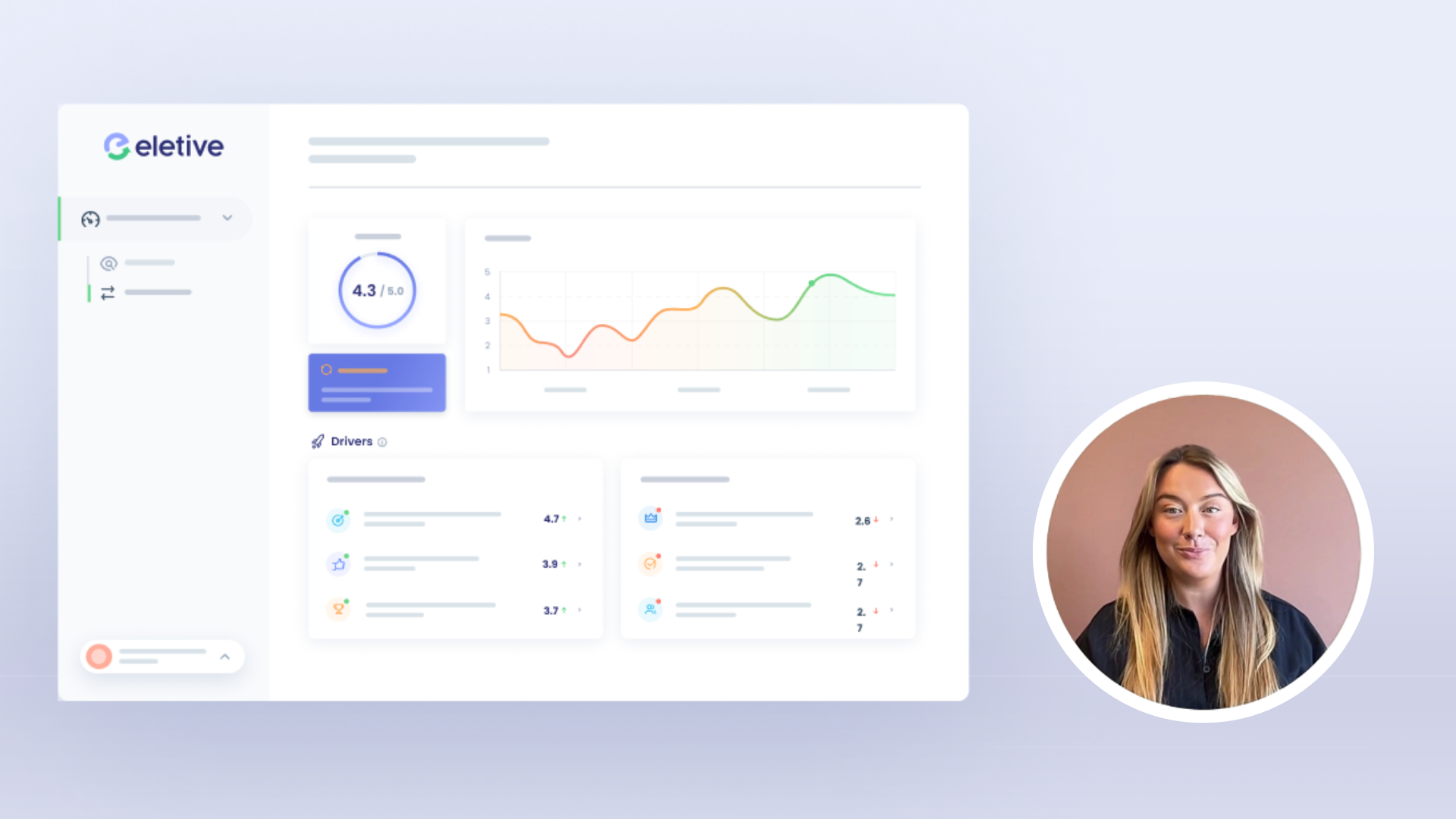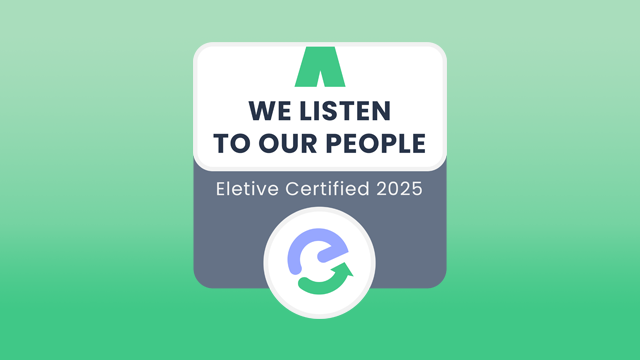An exit interview with the right exit interview questions is a chance to learn why people are leaving – and make their company better for current and future employees.
In today's fast-paced business environment, employee turnover is inevitable. Whether it's due to career advancement, dissatisfaction, or personal reasons, employees will eventually leave your organisation. By talking to the people who are departing, you will gain valuable insights about how to improve the employee experience in your organisation.
The purpose of exit interviews
Exit interviews are formal discussions with departing employees, whether they leave by choice or not, commonly used in human resources (HR). They aim to get useful information and honest feedback from employees leaving the team. Exit interviews help employers understand their company's strengths and weaknesses, solve problems, and improve employee retention - and reduce regretted attrition.
Why are exit interviews important?
When an employee leaves, it gives the company a chance to learn about their experience. Exit interview questions let employees share their thoughts and feelings, revealing the good and bad parts of their time at the company.
During exit interviews, employees discuss their motivations for leaving, which can vary widely. Some people may have personal reasons for leaving, like moving or wanting a new career. Others may be unhappy with their current job, lack chances to grow, or have problems with their managers. Understanding the specific reasons behind departures enables you to make informed decisions and implement changes that address these concerns.
A platform for valuable suggestions
Exit interviews also serve as an avenue for departing employees to offer suggestions for improvement through interview questions. With their insider knowledge, these individuals can provide invaluable insights into areas needing attention. They might propose ideas to boost employee engagement, enhance communication channels, or create a more inclusive work environment. These suggestions serve as a goldmine for organizations committed to continuous improvement and retaining top talent.
Identifying patterns and trends
Exit interviews allow employers to identify patterns and trends by analyzing feedback from multiple departures. Common themes or issues mentioned by departing employees can be recognized and addressed proactively. For instance, if several employees mention work-life balance as a reason for leaving, the company can take steps to improve this aspect and foster a healthier work environment.
A forum for closure and transition
Exit interviews give departing employees closure, letting them think about their time at the company and share final thoughts or feelings. This closure facilitates a smooth transition for both the employee and the employer, maintaining positive relationships and aiding in the departure process.
In conclusion, interviews are an indispensable tool for understanding the factors behind employee departures and gathering invaluable employee feedback. Employers and line managers get valuable information about their company's strengths and weaknesses, solve problems, and improve employee retention through these interviews. At the same time, employees who leave can share their ideas and suggestions, helping the company to keep growing and improving.
Related reading: The 6 stages of the employee journey
Performance-reviews-multilingual-teams:format(jpeg)/f/288714721386412/9eacc97513/blog_graphics__presentation__169____1280___720_px___42_.jpg)
Benefits of exit interviews
Exit interviews offer employers a multitude of benefits. Firstly, they offer valuable data that companies can use to identify common reasons for departure. This information allows organizations to take specific actions to address these concerns and improve employee satisfaction. These interviews help identify company problems causing high turnover rates.
Exit interviews assist employers in obtaining feedback on various aspects of the employee experience. These aspects include pay, growth opportunities, leadership, and team dynamics. This feedback can help employers make informed decisions and implement changes that positively impact the work environment.
Lastly, exit interviews foster open communication and show employees that their opinions and experiences matter. This can help improve the company culture and make it more attractive to talented individuals in the future.
A comprehensive exit interview questions template
A structured exit interview template is crucial for ensuring that the conversation covers all the necessary information. Here are some essential steps to consider for a successful exit interview:
7 steps for a successful exit interview
Establish a comfortable and confidential environment for the interview.
Thank the employee for their contribution and express genuine interest in their feedback.
Ask open-ended questions to encourage detailed responses.
Listen actively and avoid interrupting the employee's thoughts.
Take notes during the interview to capture key points and observations.
Capturing the key reasons for employee departure
During the exit interview, it is essential to explore the reasons behind the employee's decision to leave.
Exit interview questions examples:
What factors influenced your decision to leave?
Could you have done anything differently in particular to change your mind?
Were your expectations met during your time with the company?
Probing questions to gain valuable insights
Besides knowing why people leave, it's important to gather information about various parts of the employee's time at work. Consider asking questions related to compensation, enablement and support systems, development opportunities, leadership effectiveness, and team dynamics. Some sample questions for each category include:
Compensation-related questions:
Do you feel your compensation was fair compared to your responsibilities?
Did you receive regular feedback regarding your performance?
Enablement and support systems - questions:
Did you have access to the necessary resources and tools to perform your job effectively?
Were you provided with development or training opportunities?
Development opportunities and growth - questions:
Did you feel there were opportunities for career growth within the company?
Was the performance review process transparent and fair?
Leadership and management effectiveness - questions:
Did you feel supported by your immediate supervisor?
Did your supervisor provide constructive feedback and guidance?
Team dynamics and collaboration - questions:
How would you describe the team dynamics within your department?
Did you feel collaboration and teamwork were encouraged?
Related reading: Employee engagement surveys ultimate guide + 35 sample questions
Automating exit interviews with employee surveys
Conducting exit interviews can be time-consuming and logistically challenging, especially for organisations with a large number of existing employees. To streamline the process and ensure consistency, you can leverage a technology solution like Eletive that provide automated exit interview tools.
With Eletive you get customisable interview templates, you can analyse the data over time, and centralise exit interview information in one place. This allows you to simplify the exit interview process while gathering valuable quantitative and qualititative insights to inform your HR strategies.
In conclusion, exit interviews play a vital role in an employer's efforts to understand and address employee turnover. Organisations can improve employee retention rates by collecting feedback, gaining insights, and making informed decisions to enhance internal processes.
Using a good exit interview plan, with a structured template and technology tools, can help make these efforts successful. Embracing the value of exit interviews is a step towards building an engaged and satisfied workforce.
FAQ
1. What is an exit interview?
An exit interview is a structured conversation between an employer and an employee who is leaving the organization voluntarily or involuntarily. The purpose of an exit interview is to gather feedback, insights, and information about the employee's experience within the company.
2. What should you avoid during an exit interview?
During an exit interview, it's important to maintain a professional and respectful tone. Avoid the following:
Personal attacks or insults: Keep the conversation focused on constructive feedback.
Making promises you can't keep: Be cautious about promising changes unless you have the authority to implement them.
Dismissing feedback: Take all feedback seriously, even if it's negative or critical.
Defensive responses: Responding defensively to criticism can hinder honest communication.
3. Are exit interviews worth it?
Yes, exit interviews are definitely worth it. Exit interviews are valuable for several reasons:
Gathering feedback: They provide insights into why employees leave, helping identify areas for improvement.
Enhancing retention: Learning from departures can lead to changes that improve employee retention.
Improving the workplace: Feedback can help create a more positive work environment.
Legal protection: Exit interviews can serve as records of employee departures, which may be important in case of legal issues.
Building trust: Conducting exit interviews shows that the organization values employees' opinions and experiences.
To maximize their benefits, organisations should use the information collected in exit interviews to make meaningful improvements.
The success of exit interviews also depends on employees feeling comfortable sharing their honest opinions. Confidentiality and trust are crucial elements in this process

























:format(jpeg)/f/288714721386412/a120b9b7b5/blog-exit-interview-questions-a-complete-guide-for-employers-hero_media.jpg)
:format(png)/f/288714721386412/70a5012076/blog-eletive-secures-growth-investment-from-accel-kkr-hero_media.png)
:format(jpeg)/f/288714721386412/a906f14dff/blog-hr-trends-2026-ai-data-and-employee-experience-hero_media.jpg)
:format(png)/f/288714721386412/9f8e0a2347/blog-beyond-the-hype-the-new-rules-of-people-success-in-a-global-ai-powered-hero_media.png)